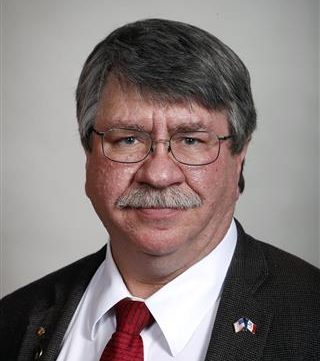From Rep. Dean Fisher’s newsletter:
Members of the House have heard from their constituents that are concerned with the growth in city and county property taxes, much of it fueled by increased property valuations. House Republicans are developing legislation aimed at giving our citizens greater clarity and control over growth in property taxes. I will dedicate the remainder of this newsletter to a staff written article about this legislation to give my constituents an opportunity to understand and comment on it.
Property Taxes: The Basics of the Budget Limitation Legislation
House Study Bill 165 has cleared a House subcommittee and is eligible to be considered in the House Ways and Means Committee. The legislation has been diligently worked on for the last several weeks and a strike-after amendment will be offered that takes into account the suggestions of many legislators, taxpayers, and interest groups.
The legislation seeks to limit the growth of city and county budgets to two percent per year. That two percent represents a reasonable growth rate that taxpayers can understand the necessity of. It takes away the ability of local governments –intentionally or not – to deceive taxpayers by telling them their tax rate was not increased, which while true, is not the whole story. There seems to be a growing trend by local governments to ride large increases in valuations (causing tax collections even at a steady rate to increase greatly). Taxpayers hear “I didn’t raise your tax rate” and think the local government must be acting extremely responsibly with their taxpayer dollars—and then are shocked to receive a property tax bill with a giant increase. This legislation ends that behavior.
Under the bill, to figure out what a local budget can be (and therefore what needs to be levied) for the next year, local governments will have to start with their prior year’s budget. To explain it simply—they would be able to levy up to two percent more than last year’s budget. When they receive their property valuations—the Department of Management will assist in calculating what the levy needs to be in order to collect the correct amount of property tax.
The legislation recognizes that there are some funds, levies, pots of money, whatever you want to call it—that need to be outside of this calculation of up to 102 percent. The legislation leaves all net new property out of the limitation. If a city had a new development built one year—the legislation would not include that value in the calculation that first year. Additionally—any bonding, mental health, EMS, capital funds, or voted upon levies (symphonies, libraries, etc.) live outside of this limitation calculation. The things that are included in the limitation calculation are the emergency, trust and agency, transit, utility replacement transfers, anything under the city 8.10 levy or the county general or supplemental levies. These are things taxpayers would generally think of as “general fund” pots of money.
So now that we understand what a local government’s budget can be and we have a tax rate—what if the elected officials think it is not enough? If a local government feels strongly that they need to certify a budget higher than 102 percent of the prior year they can—and pretty easily. The council or board simply passes a resolution of their intent to do so. If the taxpayers do not have an issue with it—it is certified and that budget (despite being over the 102 percent) becomes the base for the next year’s calculation.
But what if the taxpayers do object? House Study Bill 165 provides a mechanism for taxpayers to call for a vote on whether the government should go over the 102 percent limitation. If the taxpayers get the requisite signatures, the local government can either abandon the proposal and go back to 102 percent—or wait for the results of the referendum.
The bill also contains some suggestive language on reserve funds. It is not mandatory or statutorily required, but the legislation asks that a local government’s undesignated reserves be kept at 25 percent of the prior year’s budget. If a government has more than that, say for bond repayment and rating purposes, they need only designate those funds for that stated purpose to meet the goal of keeping reserves at a reasonable level.
House Study Bill 165’s goal is to provide transparency for taxpayers as well as local control. It provides opportunities for local governments to communicate with those that fund them. The legislation is ready for amendment and consideration by the House Ways and Means Committee.












